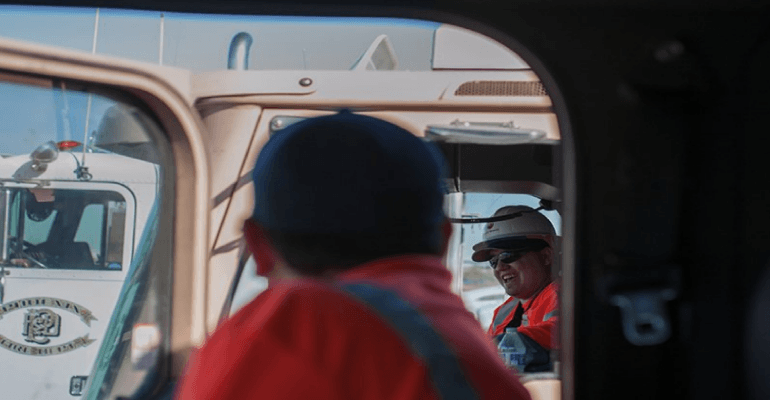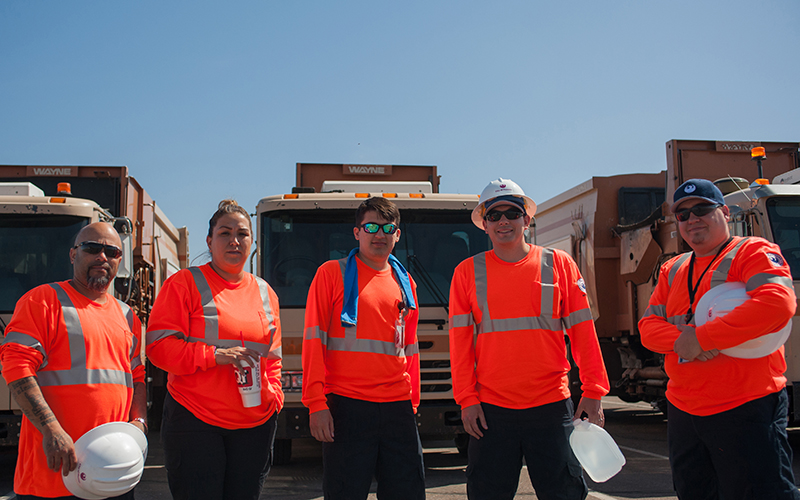
PHOENIX – The job involves working on a 400-horsepower truck weighing more than 20 tons with a full payload, driving on the right side of the vehicle and collecting garbage while much of the world still sleeps.
Being a sanitation worker is no easy task, but someone has to do it.
For those who think they may be up for the job, Phoenix offers the Solid Waste Equipment Operator Apprenticeship – an intensive, yearlong paid program to give prospective sanitation workers intensive training before they embark on the city’s streets.
Instructor Luis Dominguez said the apprenticeship started last year as a way to better train and retain new drivers and to give potential employees incentive to work for the city instead of a private company, such as Waste Management. The city held a pilot program in 2017, but Dominguez considers this year’s five apprentices to be the first official class.
The five began the apprenticeship in March. Some were new to the field, while others have been working with the city for years.
“The targets were veterans, women and youth; raw talent,” Dominguez said. “Usually the normal criteria for a sanitation driver is two years driving (experience).”
Saira Lepur said she worked office jobs for years, but she thought she’d be good at this job. She interviewed for the pilot program, but didn’t make it. She came back for the second round and was accepted into the program.
“From the minute I got in the city, I’d seen what (the drivers) did and thought, ‘Oh my God, I want to learn this!’” Lepur said.
Another apprentice, Jose Perez, said he had previous experience operating heavy machinery, but he said he learned a lot from the training. After two months, he said was looking forward to the next several months and then graduation.
The program began with commercial driver’s license training in a large parking lot, followed by the commercial driving test. After apprentices practiced with controlling left-hand training trucks, they switched to right-hand trucks on a closed course made to resemble city streets in the middle of an industrial area of south Phoenix. Later in the program, they will practice on real routes across the city.
To operate the truck safely, apprentices must memorize an extensive list of how all the truck systems work and closely inspect their vehicles before and after each drive.
Apprentice Steven Pike said the goal is to not only lower the employment turnover rate among solid waste operators, but to provide better job security for the people who go through the program. Pike said he and his fellow apprentices will be paid more than $22 per hour after they graduate early next year into salaried, steady jobs with Phoenix.
The city serves about 350,000 households, according to its website.
“They’re setting you up for success,” Perez said. “They’re training you to love this job, to keep you in the long run. I’m not going away.”

